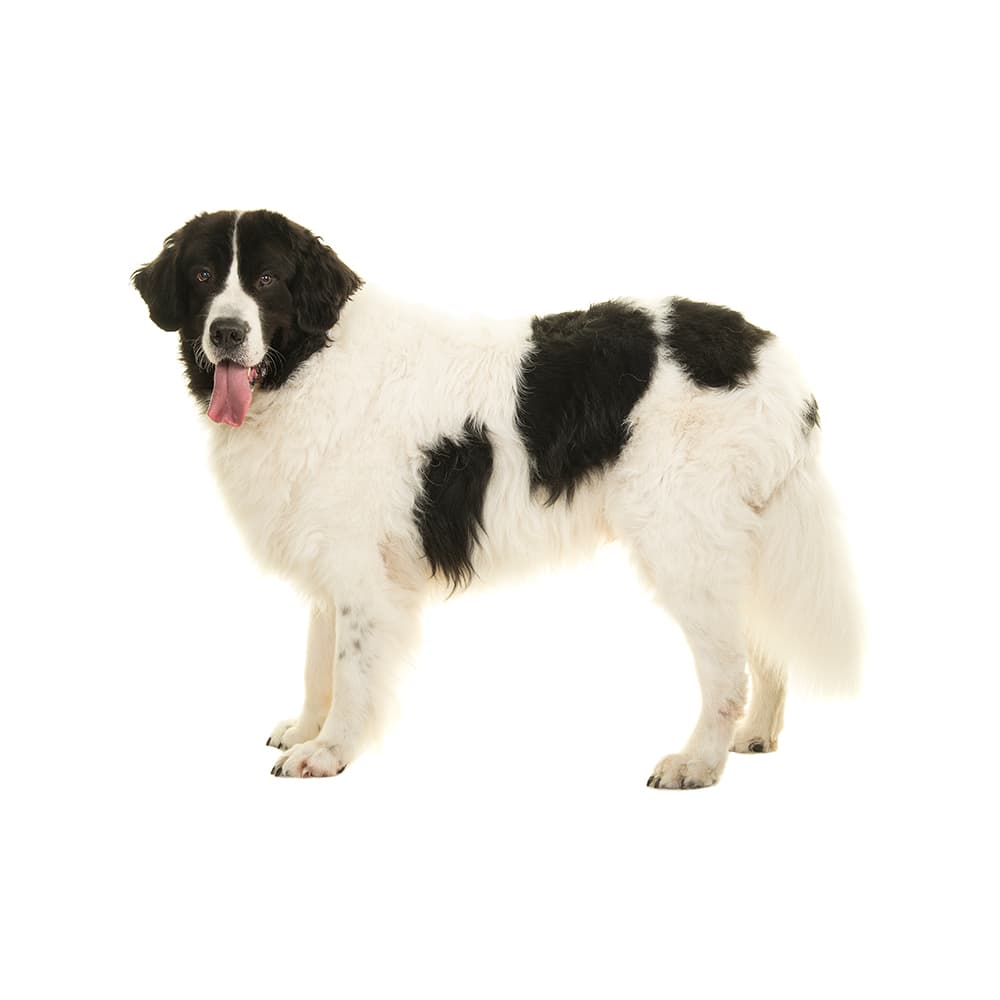Basepaws analyzes this breed as part of a group of other breeds.


Basepaws analyzes this breed as part of a group of other breeds.


Basepaws analyzes this breed as part of a group that also includes Landseer, Newfoundland.
Despite being distinct in characteristics and origin, some pairs or groups of breeds lack the number of genetic differences required to distinguish these populations from one another, particularly when only a subset of these differences are inherited by a mixed breed dog. As we continue to expand our breed database, we aim to increase the resolution of our ancestry algorithm such that differentiating between increasingly specific ancestral sources becomes possible.

The Landseer, also known as the Landseer Newfoundland, is a large, powerful working breed that originated in Newfoundland, Canada. They are named after the renowned British painter Sir Edwin Landseer, who often depicted them in his artwork. The Landeer is considered a variety of the Newfoundland, with its white and black markings as the first coat color variety representative of the breed. They were originally bred as working dogs for water rescue and draft work. They have a strong swimming ability and were used to assist fishermen in retrieving fishing nets and rescuing drowning people.
Landseers can be affected by cystinuria, muscular dystrophy, signal transduction disorder, thrombopathia, and urolithiasis (cystine). As a larger dog breed, they are also at risk of developing orthopedic problems such as hip and elbow dysplasia. Genetic testing is recommended, including for the following additional conditions: hyperuricosoria, degenerative myelopathy, and progressive rod-cone degeneration.
Landseers are known for their gentle and affectionate nature. They are intelligent, loyal, and social dogs that are generally good with children and other pets. Due to their working background, they have a strong work ethic and are willing to please their owners. They can be protective of their family, making them good watchdogs, but they are not aggressive by nature.
Landseers are excellent swimmers and have webbed feet, which aids them in water rescues.
The Landseer's coat is double-layered, consisting of a dense, water-resistant outer coat and a soft, insulating undercoat. Their fur is medium to long in length, and it lies flat on their body.
The breed gained popularity in England during the 19th century, thanks to Sir Edwin Landseer's paintings featuring these dogs.
The Landseer is said to be a descendant of the now extinct St. John's Water Dog.
https://vgl.ucdavis.edu/breed/landseer
https://www.fci.be/en/nomenclature/LANDSEER-EUROPEAN-CONTINENTAL-TYPE-226.html
https://www.akc.org/dog-breeds/newfoundland/
https://www.ukcdogs.com/newfoundland
Recommended by top vets with decades of experience
21 breeds
64 genetic health markers
50 genetic trait markers
